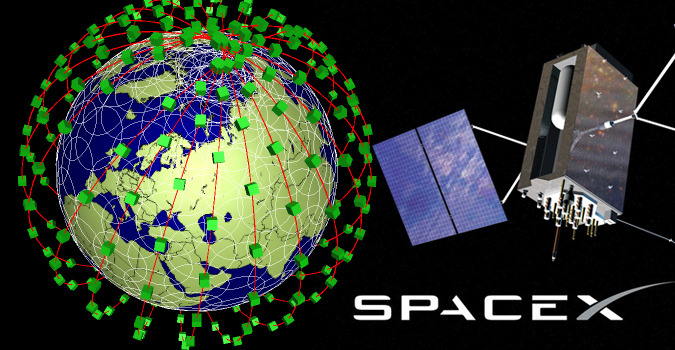A new space race is afoot. Soon thousands of small satellites will circle the Earth. They will deliver broadband Internet and vast amounts of valuable data.
Last month SpaceX, notified the Federal Communications Commission of its plan to deploy 4,425 satellites 750 miles above the Earth. The immediate goal is for the Volkswagen-sized spacecraft to illuminate the digital darkness that plagues so much of the planet. It’s also a huge opportunity to open unserved markets to new software services.
This a golden era for satellite investors. Miniaturization and modularity has slashed costs of satellite components. SpaceX, founded and led by Tesla honcho Elon Musk, found a way to make transport cost effective, too. However, the real prize is software.

“What investors are betting on is nothing short of the future of Big Data, the Internet, and global market intelligence all rolled into a suite of orbital technologies,” said Richard Rocket, CEO and co-founder of space industry analysis firm NewSpace Global. “What’s driving a lot of the excitement in the eyes of investors is really ones and zeros -- it’s software, it’s services.”
Undoubtedly that was part of the reason Alphabet (GOOGL) and Fidelity Investments ponied up $500 million apiece last year to work with SpaceX.
Alphabet is no stranger to extraterrestrial investments. In 2015 it paid $500 million to acquire Skybox. The small satellite company that made a name for itself with high resolution imagery beamed from outer space. That caught the eye of Google Maps. And Project Loon, a whimsical Internet balloon company, recently graduated from Google’s moonshot factory.
Almost 57% of the world still does not have Internet. That darkness is a great unmined resource. The nexus of software analytics and virtually unlimited compute power make it extractable and saleable.
A massive constellation of satellites is the final piece of the puzzle. In a technical statement attached to the FCC filing, SpaceX made the scale of the project clear:
“Once fully deployed, the SpaceX System will pass over virtually all parts of the Earth’s surface and therefore, in principle, have the ability to provide ubiquitous global service.”
Although SpaceX will focus on Internet delivery, real-time imaging, weather and asset tracking and many software combinations and permutations are comingas networks are deployed. One of its biggest mainstream competitors in space systems now is Lockheed Martin (LMT). We will have fresh investment picks for you among small-caps and mid-caps in coming weeks. Watching this space, so to speak.
##

About Jon Markman: A pioneer in the development of stock-rating systems and screening software, Jon Markman is co-inventor on two Microsoft patents and author of the bestselling books The New Day Trader Advantage, Swing Trading and Online Investing, as well as the annotated edition of Reminiscences of a Stock Operator. He was portfolio manager and senior investment strategist at a multi-strategy hedge fund from 2002 to 2005; managing editor and columnist at CNBC on MSN Money from 1997 to 2002; and an editor, investments columnist and investigative reporter at the Los Angeles Times from 1984 to 1997.
Sign-up for our Free Friday email
For teams that need additional security, control, and support.